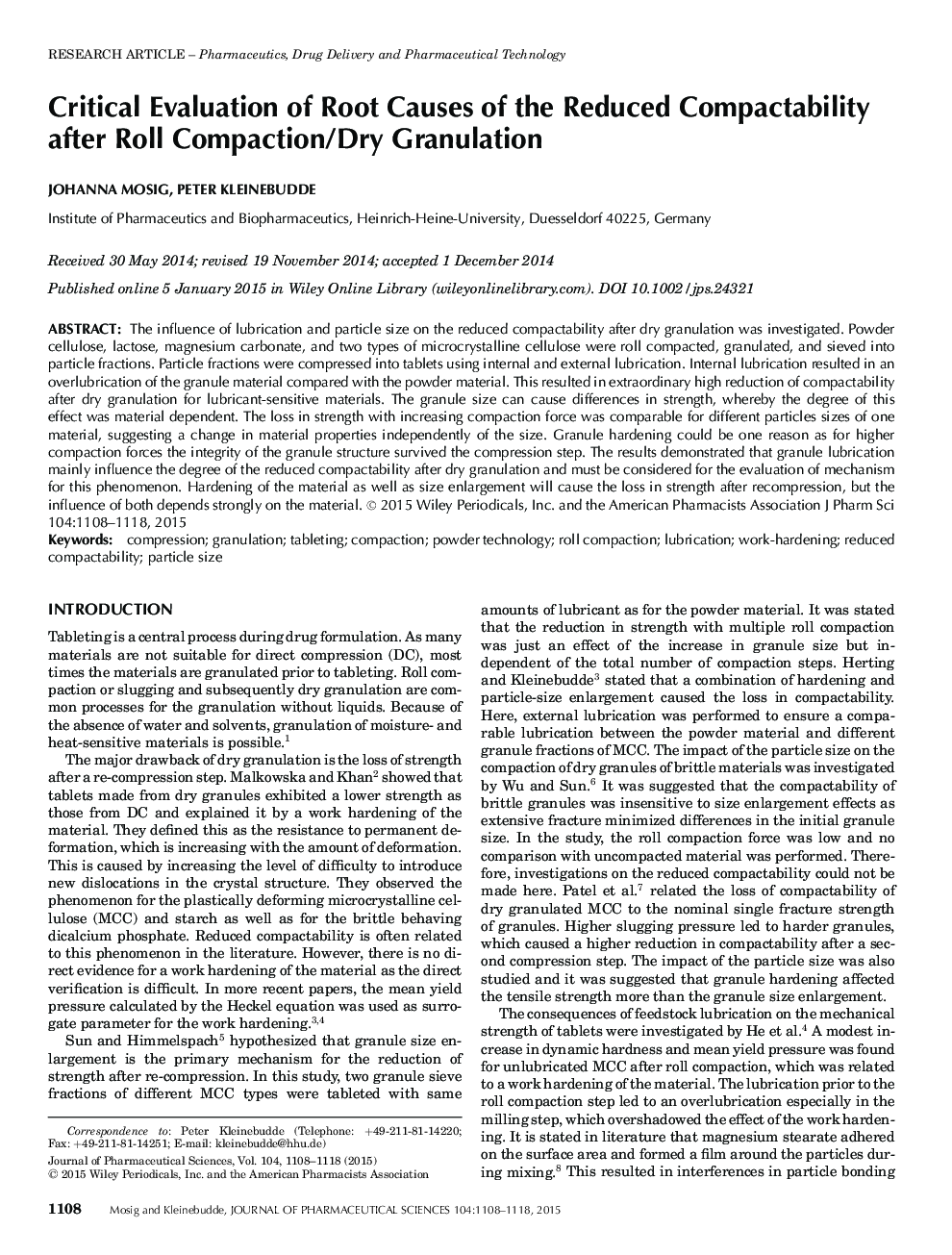| Article ID | Journal | Published Year | Pages | File Type |
|---|---|---|---|---|
| 10162069 | Journal of Pharmaceutical Sciences | 2015 | 11 Pages |
Abstract
The influence of lubrication and particle size on the reduced compactability after dry granulation was investigated. Powder cellulose, lactose, magnesium carbonate, and two types of microcrystalline cellulose were roll compacted, granulated, and sieved into particle fractions. Particle fractions were compressed into tablets using internal and external lubrication. Internal lubrication resulted in an overlubrication of the granule material compared with the powder material. This resulted in extraordinary high reduction of compactability after dry granulation for lubricant-sensitive materials. The granule size can cause differences in strength, whereby the degree of this effect was material dependent. The loss in strength with increasing compaction force was comparable for different particles sizes of one material, suggesting a change in material properties independently of the size. Granule hardening could be one reason as for higher compaction forces the integrity of the granule structure survived the compression step. The results demonstrated that granule lubrication mainly influence the degree of the reduced compactability after dry granulation and must be considered for the evaluation of mechanism for this phenomenon. Hardening of the material as well as size enlargement will cause the loss in strength after recompression, but the influence of both depends strongly on the material. © 2015 Wiley Periodicals, Inc. and the American Pharmacists Association.
Keywords
Related Topics
Health Sciences
Pharmacology, Toxicology and Pharmaceutical Science
Drug Discovery
Authors
Johanna Mosig, Peter Kleinebudde,
